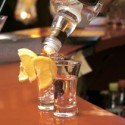Top 5 Reasons Why Free Alcohol Treatment Centers Work
Free alcohol treatment centers are located throughout the country to help people overcome their alcohol addictions as well as help people to remain safe. According to the National Institute on Alcoholism and Alcohol Abuse, 18 million people in America suffer from an alcohol addiction disorder.
Effects of Alcohol
Alcohol is a legal substance that ninety percent of the population has tried at least once in their lifetime. Alcohol is a depressant that slows down the body’s nervous system and impairs a person’s thought process and judgment. Alcohol addiction is slow and typically takes time to occur, but the problem is that once it has occurred it is very hard for people to quit, especially since alcohol is sold all over the place. This is why the majority of people who have an alcohol addiction need help to overcome their addiction.
Alcohol Addiction Treatment Options

Free alcohol treatment does work!
Alcohol rehabilitation centers have an excellent track record at helping people come clean from alcohol addictions. Although alcohol rehabilitation centers are a great choice for people to attend if they want to come clean from alcohol, they are costly and some people cannot afford them. This is why there are free alcohol treatment programs that are typically funded through the government and are little to no cost for people to go to.
Five reasons why free alcohol addiction centers work:
- They provide support and education to people who are having a hard time coming off of alcohol on their own.
- They have trained professionals and medical staff that have the needed resources to help a person go through the withdrawal symptoms more easily.
- They have other patients in their programs that are going through the same symptoms and problems as others and they all can support and help each other through the hard times.
- The majority of them have mental health experts that are available to help people go through the emotional withdrawals of alcohol.
- They provide patients with the education and resources to stay clean once they are out on their own again.
Free alcohol treatment centers may not be as comfortable as high cost rehabilitation centers are, but they are just as effective being that all rehab centers have the same goal, which is to help a person get clean.
The withdrawal symptoms of alcohol are highly unpleasant and can be extremely difficult for a person to go through on their own. Going to a treatment program provides an individual with a higher success rate of becoming free of their addiction. If a person does not want to go to a rehabilitation center then they always have the option of admitting themselves into an alcohol anonymous group. Alcohol anonymous groups are all over the country and are located throughout every city. They are a great support system for former alcoholics and have a large success rate at helping a person to get through the hard times as well as helping them to stay clean.
